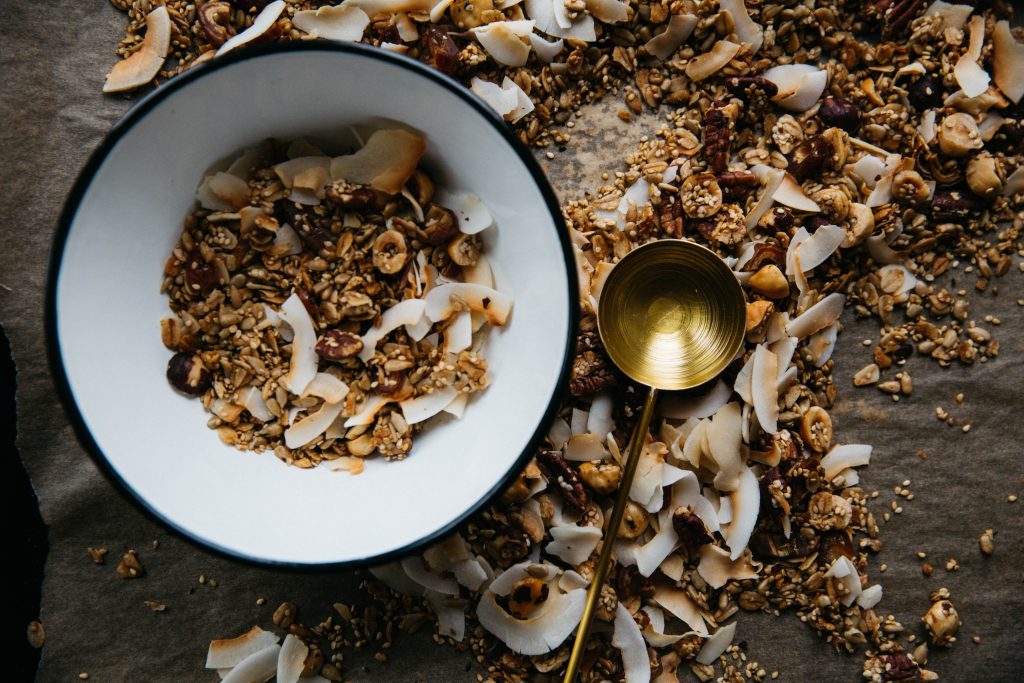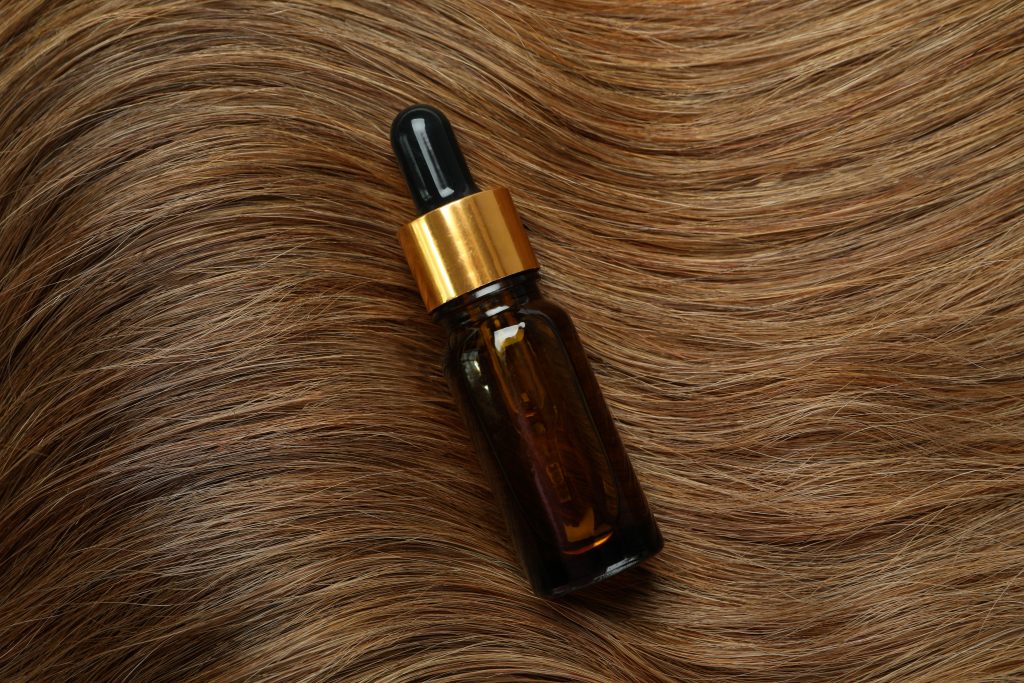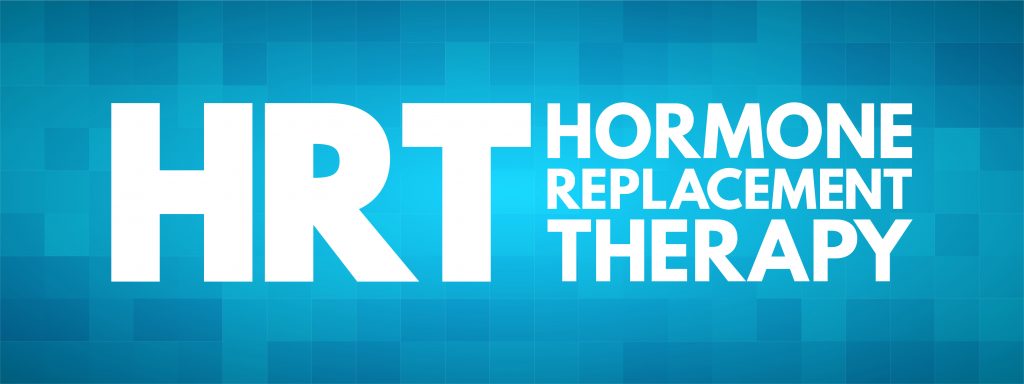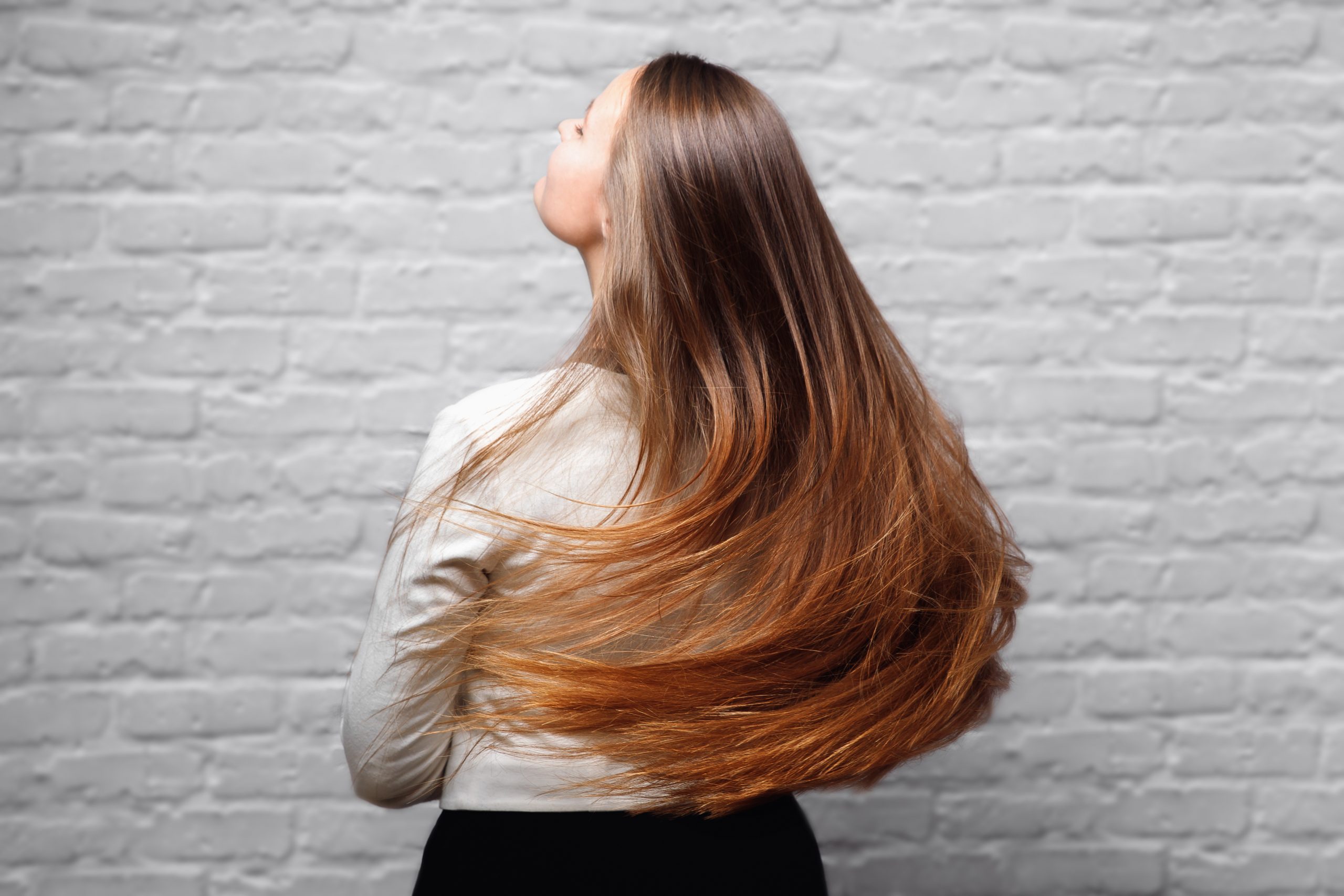Are you a woman going through Perimenopause and experiencing the frustrating problem of hair loss? You are not alone in this journey. You look at yourself in the mirror and notice that your hair is thinning, that you have less hair or that your hair is falling out. This can be disheartening and remind you of the changes that are going on in your body.
Hair loss during the perimenopause can be emotionally distressing and affect your self-esteem and confidence. Many women struggle with this problem as their hormones fluctuate and their bodies go through major changes. Studies show that up to 40% of women are affected by hair loss during this transitional phase. But instead of dwelling on the statistics, focus on the positive steps you can take to combat this problem.
In the following sections, learn more about the power of proper nutrition, scalp care routines, hormone therapy, stress management techniques, hair-friendly supplements, effective topical treatments, yoga, Ayurvedic remedies and lifestyle modifications.
Perimenopause Hair Loss- Hormonal effects and Symptoms
During the perimenopause, hormonal changes can have a significant impact on hair health. Falling oestrogen levels disrupt the hair growth cycle, leading to increased hair loss and slower hair regrowth. Lower progesterone levels make hair follicles more vulnerable to dihydrotestosterone (DHT), a hormone derived from testosterone, resulting in weaker strands. Symptoms of perimenopause hair loss include hair fall, thinning hair, receding hairline and widened part line. By understanding these hormonal effects and recognising the associated symptoms, women can proactively address and combat hair loss at this stage of life. In the following sections, we will explore effective solutions to promote hair regrowth and regain confidence during perimenopause.
Also Check – Comprehensive Guide to Understand and Manage the Symptoms of Perimenopause
9 Effective Solutions for Perimenopause Hair Loss
Solution 1 # Nutritional Support

A balanced diet rich in key nutrients is essential for maintaining healthy hair during perimenopause. Here are some important foods that you should consume-
- Eggs- Packed with biotin and protein eggs promote hair growth and strength.
- Spinach- Loaded with iron, folic acid and vitamins A and C spinach nourishes the hair follicles.
- Indian Gooseberry (Amla)- Rich in vitamin C and antioxidants, amla supports hair health.
- Yoghurt- Provides protein and vitamin B5 and strengthens the hair strands.
- Sweet Potatoes- High in beta-carotene, sweet potatoes promote a healthy scalp and hair.
- .Lentils and pulses- Lentils and pulses are rich in protein, iron and biotin and promote hair growth.
- Nuts and Seeds- Almonds, flaxseeds, sesame seeds and walnuts provide vitamin E, zinc and omega-3 fatty acids for strong hair.
- Whole Grains- Include black wheat, millets like bajra, jowar, foxtail, proso, kodo, barnyard and other varieties. These whole grains provide iron, zinc and B vitamins for optimal hair health.
- Coconut- Use coconut in various forms for its nourishing and moisturising properties.
These nutrient-rich foods provide essential vitamins, minerals and proteins that promote hair growth, strengthen hair strands and maintain overall perimenopausal hair health. Including these foods in your diet can make a noticeable difference in combating hair loss and promoting healthy, strong hair.
Also Check – Nutrition and Diet Tips for Perimenopausal Women
Solution 2 # Scalp and Hair Care Routine

Proper hair care is essential during perimenopause to maintain the health and strength of your hair.
During perimenopause, hormonal changes can make your hair more prone to damage and breakage. Therefore, a gentle approach to hair care is crucial. Here are some tips to help you maintain a healthy scalp and promote optimal hair growth-
- Be mindful of heat styling- overuse of heat styling tools like straighteners and curling irons can lead to hair damage. Limit their use and always use a heat protection spray before styling.
- Avoid tight hairstyles- Tying your hair tightly into a ponytail, braid or chignon can cause tension and hair breakage. Opt for looser hairstyles to minimise the strain on your hair.
- Use a wide-toothed comb or a brush with soft bristles– These are gentler on your hair and minimise pulling and tugging, reducing the risk of hair breakage.
- Be careful with wet hair- Wet hair is more prone to damage. Avoid vigorous towel- drying your hair and instead use a microfibre towel or cotton T-shirt to gently blot away excess moisture.
- Choose hair products wisely- Look for shampoos, conditioners and styling products that are specifically formulated for your hair type and needs. Avoid harsh chemicals and sulphates, which can strip your hair of its natural oils.
- Protect your hair from the sun- prolonged exposure to the sun can damage your hair. Use a hat, scarf or UV-protective hair products when outdoors.
- Maintain a healthy scalp- A healthy scalp provides a conducive environment for hair growth. Cleanse your scalp regularly to remove excess oil, debris and product build-up.
Also Check- 5 Best Vitamins for Perimenopause
Solution 3# Supplements for Hair Health

Supplements can play a role in promoting hair health during perimenopause. Let us explore the effectiveness of specific supplements such as biotin, saw palmetto and omega-3 fatty acids, discuss recommended dosages and possible side effects, and emphasise the importance of consulting a doctor before starting any new supplements.
Biotin– Biotin, also known as vitamin B7, is a popular dietary supplement believed to promote hair growth and strengthen hair strands. Although biotin deficiency is rare, some individuals may benefit from supplementation. The recommended daily dose of biotin for healthy hair is usually 2,500 – 5,000 micrograms. Please note that biotin supplements may interfere with certain blood tests. Therefore, inform your doctor if you are taking biotin supplements.
Saw Palmetto– Saw palmetto is a herbal supplement that may help with hair loss associated with hormonal imbalances. It is believed to inhibit the enzyme responsible for converting testosterone into dihydrotestosterone (DHT), which can contribute to hair thinning. The recommended dosage and possible side effects of saw palmetto may vary. Therefore, be sure to consult a doctor before taking it, especially if you have any underlying medical conditions or are taking other medications.
Omega-3 Fatty Acids- Omega-3 fatty acids, typically found in fish oil supplements, have anti-inflammatory properties that can benefit hair health. They can help nourish hair follicles and promote a healthy scalp. The recommended dosage of omega-3 fatty acids for hair health is usually 1,000 – 2,000 milligrammes per day. Possible side effects may include gastrointestinal upset or thinning of the blood. Therefore, talk to your doctor before you start taking omega-3 fatty acids, especially if you are taking medication or have bleeding disorders.
Before you start taking any new supplements, be sure to consult a doctor. They can assess your individual needs and medical history and determine if the supplements are right for you. They can also advise you on the correct dosage and possible interactions with medications or underlying health conditions.
Solution 4 # Stress Management

Stress can have a significant impact on perimenopause hair loss. Let us explore the relationship between stress and hair health during this phase and introduce effective stress reduction techniques to promote hair growth.
The hormonal changes during perimenopause can make women more vulnerable to the negative effects of stress. Increased stress levels can disrupt the normal hair growth cycle, leading to increased hair loss and thinning. Chronic stress can also contribute to inflammation, which further exacerbates hair loss.
To mitigate the effects of stress on perimenopausal hair health, it is important to incorporate stress reduction techniques into your daily routine. Here are some effective stress management strategies-
Meditation- Regular meditation practices can promote relaxation, reduce stress hormones and improve overall well-being. Consider mindfulness meditation, deep breathing exercises or guided meditations to find inner peace.
Exercise- Engaging in regular physical activity not only improves your overall health, but also helps reduce stress. Choose activities that you enjoy, such as walking, yoga, swimming or dancing, and make them part of your routine.
Therapy and Counseling- Professional help in the form of therapy or counselling can offer you valuable support in coping with stress during perimenopause. Therapists can help you develop coping mechanisms, improve your emotional well-being and address any underlying issues that contribute to stress.
Self-Care- To manage stress, it is important to prioritise self-care. Engage in activities that bring you joy and relaxation, such as reading, bathing, hobbies or spending time in nature. Find out what makes you feel good and make self-care a regular part of your routine.
Healthy living habits- Establishing healthy lifestyle habits can help lower stress levels. Make sure you get enough sleep, eat a balanced diet, limit caffeine and alcohol intake, and practise time management to avoid excessive stress.
By managing stress effectively, you can create a more conducive environment for hair growth during perimenopause. Remember that stress management is a holistic approach that has a positive impact on both your overall well-being and the health of your hair.
Solution 5# Yoga for Hair Health

Yoga not only promotes overall well-being, but can also have a positive effect on hair health during perimenopause. Let us explore the benefits of yoga for hair health and discuss specific yoga poses that promote circulation, relieve stress and benefit hair growth.
Benefits of Yoga for Hair Health
Yoga practices include postures, breathing exercises and meditation, all of which contribute to improved overall well-being. By reducing stress and improving blood circulation, yoga can indirectly promote hair health. Stress reduction is especially important during perimenopause, as stress can contribute to hair loss. In addition, improved blood circulation to the scalp helps to nourish the hair follicles, which promotes hair growth and a healthy scalp.
Specific Yoga Poses for Hair Health
While any form of physical activity can be beneficial, certain yoga poses are specifically target circulation, stress reduction, and hair health. Here are a few poses to consider-
Downward-Facing Dog (Adho Mukha Svanasana)- This pose improves blood circulation to the scalp, nourishing the hair follicles and promoting hair growth.
Standing Forward Bend (Uttanasana)- This pose increases blood circulation to the scalp and relaxes the nervous system, reducing stress and promoting healthy hair.
Headstand (Sirsasana)- Inverted poses like the headstand increase blood flow to the scalp, provide nourishment to the hair follicles and improve hair health.
Fish Pose (Matsyasana)- This pose stimulates the thyroid gland, which plays a crucial role in regulating the hormones that affect hair health.
Child’s Pose (Balasana)- This restorative pose promotes relaxation, reduces stress and helps improve overall well-being, which can have a positive impact on hair health.
Remember to practise yoga under the guidance of a qualified teacher, especially if you are new to yoga or have particular health problems. They can offer modifications and ensure proper alignment so that you get the most out of the benefits of the poses.
Also Check – 5 Classic Yoga Asanas – Ignite Your Inner Glow in Perimenopause
Solution 6 # Ayurvedic Remedies

Ayurvedic remedies have been used for centuries to treat various health problems, including hair loss during perimenopause.
Ayurvedic Herbs for Hair Health
Ayurveda, an ancient Indian system of medicine, recommends specific herbs to promote hair growth and prevent hair loss. Commonly used herbs include-
- Amla (Indian Gooseberry )- Amla is rich in vitamin C and antioxidants that promote hair health, prevent premature greying and strengthen hair follicles.
- Bhringraj- Bhringraj is believed to nourish the scalp, promote hair growth and prevent hair loss. It is often used in Ayurvedic oils and hair care products.
- Brahmi- Brahmi is known for its calming properties and can help reduce stress, which is beneficial for maintaining healthy hair during perimenopause.
Scalp Massages with Ayurvedic Oils
Ayurvedic scalp massages are an integral part of Ayurvedic hair care. Massaging the scalp with Ayurvedic oils helps to improve blood circulation, nourish the hair follicles and promote hair growth. Oils commonly used in Ayurvedic hair care include coconut oil, sesame oil and amla oil. These oils are believed to strengthen the hair, reduce scalp dryness and improve overall hair health.
When using Ayurvedic remedies, it is important to know that individual responses may vary. It is advisable to consult an Ayurvedic practitioner or healthcare professional experienced in Ayurveda to determine the most appropriate remedies and dosages for your specific needs.
Also Check – 7 Effective Solutions for Perimenopause Itchy and Dry Skin
Solution 7 # Topical Treatments

Topical treatments can be beneficial for managing hair loss during perimenopause.
Minoxidil
Minoxidil is a topical medication approved by the FDA for the treatment of hair loss. It is available over the counter and can promote hair growth by prolonging the growth phase of hair follicles and increasing blood flow to the scalp. Minoxidil is usually applied directly to the scalp twice a day. With consistent use, it may take several months before you see noticeable results. It is important that you follow the instructions and consult a doctor before using minoxidil.
Natural Oils
Various natural oils, such as coconut oil, argan oil and rosemary oil, are traditionally used to nourish and strengthen the hair. These oils can help to moisturise the scalp, reduce inflammation and improve hair health. They can be applied topically by gently massaging them into the scalp. However, it is important to note that the effectiveness of natural oils for hair loss may vary from person to person and further research is needed to prove their scientific efficacy.
Proper application and consistency are key when using topical treatments for hair loss. Be sure to follow the product manufacturer’s or healthcare professional’s instructions. Consistent application is often necessary to achieve the desired results. Premature discontinuation of treatment may result in reversal of the effect.
Solution 8 # Hormone Therapy

Hormone replacement therapy (HRT) is a medical treatment that involves supplementing the body with synthetic hormones to manage perimenopause symptoms, including hair loss.
Hormone replacement therapy can help relieve the symptoms of perimenopause by replenishing declining levels of oestrogen and progesterone in the body. By restoring hormone balance, HRT can reduce hair loss and promote hair regrowth. However, it is important that you consult a doctor to determine if HRT is right for you.
Benefits of HRT
Hair regrowth- HRT may be able to stimulate hair regrowth in people suffering from perimenopausal hair loss.
Improved hair texture- Restoring hormone balance through HRT can help improve the overall texture and quality of hair.
Side Effects of HRT
Despite its potential benefits, HRT is not without risks. It is important to discuss the possible risks and side effects with your doctor before considering this treatment option. Some possible risks associated with HRT are-
Increased risk of blood clots- HRT may slightly increase the risk of blood clots, especially in women who are older or have other risk factors.
Risk of Breast Cancer- Long-term use of certain hormone combinations in HRT may slightly increase the risk of breast cancer. The increase in risk depends on factors such as the duration of HRT use and individual health history.
For women who cannot undergo HRT or prefer alternative approaches, there are non-hormonal options. These include lifestyle changes, stress management techniques, dietary changes and herbal supplements. It is important to discuss these alternatives with a doctor to find the most appropriate approach for your particular situation.
Solution 9 # Lifestyle Modifications

Lifestyle factors play an important role in hair health during perimenopause.
Impact of Lifestyle Factors on Hair Health
Unhealthy lifestyle habits can contribute to hair loss and affect the overall condition of your hair during perimenopause. Here are some key factors to consider-
Smoking- Smoking constricts blood vessels, including those that supply nutrients to the hair follicles. This can lead to reduced hair growth and increased hair loss.
Alcohol Consumption- Excessive alcohol consumption can disrupt hormone balance and have a negative impact on hair health. It can also dehydrate the body and contribute to nutrient deficiencies that affect hair growth.
Sleep- Insufficient sleep or poor quality sleep can disrupt hormone regulation, increase stress levels and affect overall health, which in turn can affect hair health.
Improve lifestyle habits for Healthier Hair Growth- Making positive changes to your lifestyle can greatly improve the health of your hair during perimenopause. Here are some actions you should consider taking-
- Quit smoking- When you stop smoking, blood circulation improves, including to the hair follicles, which promotes healthier hair growth.
- Moderate alcohol consumption- Reduce alcohol consumption and ensure moderation. This will help the body maintain hormonal balance and improve overall health.
- Prioritise sleep- Aim for 7-8 hours of quality sleep every night. Create a relaxing bedtime routine and establish a set sleep schedule to support optimal hormone regulation and overall well-being.
- Maintain a balanced diet- Make sure you eat a diet rich in fruits, vegetables, lean proteins, and whole grains. This provides essential nutrients for hair health, such as vitamins, minerals and proteins.
- Stay hydrated- Drink an adequate amount of water daily to maintain hydration, as dehydration can affect the health and appearance of your hair.
- Manage stress- Incorporate stress management techniques such as yoga, meditation or hobbies to lower stress levels, as chronic stress can lead to hair loss.
In summary, perimenopause hair loss can be a challenging experience, but there are various solutions to support healthy hair growth. With a holistic approach that includes nutrition, self-care, stress management and exploring natural remedies, you can nurture your hair and navigate this transitional phase with confidence and grace. Remember that you are not alone on this journey and that there is hope to regain vibrant and beautiful hair.

Leave a Reply